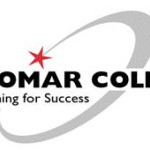- Industry: Education
- Number of terms: 12355
- Number of blossaries: 0
- Company Profile:
Founded in 1946, Palomar College is a public two-year community college in the city of San Marcos, located in north San Diego County, California. Palomar offers over 300 associate degree, certificate programs and is designated by the U.S. Department of Education as an Hispanic-Serving Institution ...
A genetically inherited sex chromosome abnormality only affecting males. Men with XYY syndrome inherit an extra Y chromosome--their genotype is XYY. They are usually quite tall (i.e., above 6 feet) and generally appear and act normal. During adolescence, they frequently have severe facial acne. They are usually fertile and lead ordinary lives as adults. Many, if not most, are unaware that they have a chromosomal abnormality. The frequency of XYY syndrome is not certain due to statistical differences between different studies of this condition. It may be as common as 1 in 900 male births to as rare as 1 in 1,500 or even 1 in 2,000.
Industry:Anthropology
A genetically inherited sex chromosome abnormality only affecting males. Genotypically, they are XXY or more rarely XXXY, or XXXXY. They have asexual to feminine body contours as well as breast enlargement and relatively little body hair. They are sterile or nearly so and their penis, testes, and prostate gland are small. Like metafemales, most Klinefelter syndrome men are an inch or so above average height. They usually have slight learning difficulties, especially with language. However, most are sufficiently ordinary in appearance and mental ability to live in society without notice. The frequency of Klinefelter syndrome has been reported to be between 1 in 500 and 1 in 1,000 male births. Males with Down syndrome sometimes also inherit Klinefelter syndrome.
Industry:Anthropology
A genetically inherited sex chromosome abnormality only affecting females. Women with Turner's only have one X chromosome--their genotype is X0. These individuals are short in stature, averaging 4'7" and have distinctive webbed necks (i.e., extra folds of skin). They have exceptionally small breasts and generally lack secondary sexual characteristics. Their ovaries do not develop normally and they do not ovulate. They are in a sense postmenopausal from early childhood and are sterile. In some individuals, there is slight mental retardation. Turner syndrome is rare--current estimates of its frequency range from 1 in 3000 to 1 in 10,000 females.
Industry:Anthropology
A genetically inherited form of mental retardation usually resulting from the inheritance of an extra autosome 21. Down syndrome individuals also typically are short and stocky in build with short appendages. They usually have broad round faces, saddle-shaped nose profiles, and thick tongues that are often stuck out of their mouths. The incidence of Down syndrome children goes up rapidly with the age of the mother, particularly after 40.
Industry:Anthropology
A genetically inherited disorder characterized by dwarfism, extra fingers, and malformations of the arms, wrists, and heart. The majority of the known cases in the world of this rare syndrome have been found among the Amish and 7% of them carry the responsible recessive autosomal allele.
Industry:Anthropology
A genetically inherited condition caused by the inability to produce the enzyme hexosaminidase A. This results in progressively increased fluid pressure on the brain and the subsequent degeneration of the brain and nervous system beginning about 6 months of age and inevitably resulting in death usually by age 2-3. The gene responsible for Tay-Sachs Disease is recessive. It has been most common among the descendents of Eastern European Jews (Ashkenazi Jews).
Industry:Anthropology
A form of RNA that binds to specific amino acid molecules and transports them to the ribosomes for the assembly of proteins. Transfer RNA molecules temporarily bond with corresponding messenger RNA codons at the ribosomes in this process of protein synthesis.
Industry:Anthropology
A disease of the skeletal system in which the bones are softened and often bent as a result of vitamin D deficiency in the diet that hinders the normal development of bones and teeth. Rickets most frequently affects malnourished children.
Industry:Anthropology
A class of warm blooded, usually hairy animals, that feed their young with milk secreted by the mammary glands of females. Mammalia include monotremes, marsupials, primates, cats, dogs, bears, hoofed animals, rodents, bats, seals, dolphins, and whales.
Industry:Anthropology
A chronometric date that is measured in years before the present. By convention, scientists have assigned 1950 A. D. In the Gregorian calendar as the present.
Industry:Anthropology
